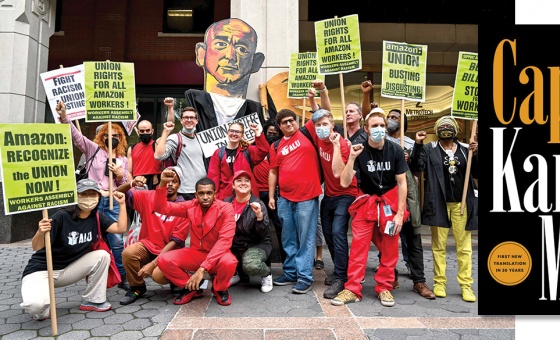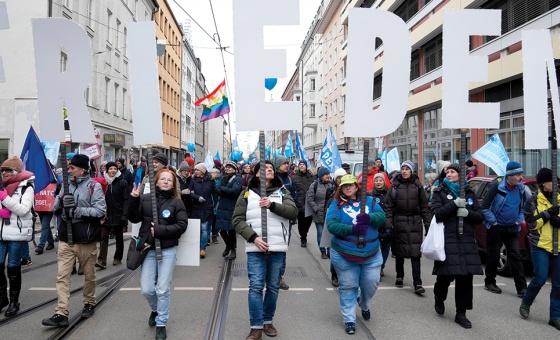This is the last article you can read this month
You can read more article this month
You can read more articles this month
Sorry your limit is up for this month
Reset on:
Please help support the Morning Star by subscribing here
WOMEN effectively worked for free up until yesterday in 2025, according to a new TUC analysis.
The gender pay gap remains stubbornly high at 13.1 per cent and the study found that women work 48 days unpaid on average compared to men.
This is partly because women tend to be employed in lower-paid roles than men, the union body said, adding that they are also more likely to work part-time due to caring responsibilities.
Disparities in pay were found to vary across sectors.
In healthcare and social work, the gender pay gap is 11.2 per cent, but in information and communication roles it jumped to 16.7 per cent.
Women working in finance and insurance faced a huge 29.8 per cent gap, meaning that they effectively work for free until April 19.
The TUC’s analysis found the gender pay gap to be the widest for middle-aged and older women.
Women in their forties have a pay gap of 16.5 per cent, increasing to 18.9 per cent when they reach their fifties.
It dipped slightly to 17.5 per cent for those over 60, yet even with this decrease, women in this age group would not start earning until March 6.
Regionally, the pay gap is the largest in the south-east of England, where women work effectively 65 days for free, compared to London, where they work 53 days unpaid.
TUC general secretary Paul Nowak said: “Everyone should be paid fairly for the job that they do.
“But working women are still waiting for pay parity.
“The Employment Rights Bill can help to close the gender pay gap by banning exploitative practices like zero-hours contracts that hit women the hardest.”
The Bill, which is expected to come into effect in 2026, is also due to introduce fair-pay agreements in social care which Mr Nowak says will boost pay and conditions in a sector with a female-dominated workforce.
Fawcett Society chief executive Jemima Olchawski said: “Our government must make flexible work the default with a requirement for jobs to be advertised as flexible upfront, to enable more women to work.
“We look forward to seeing mandatory ethnicity pay gap reporting and action plans, and we need employers to stop asking discriminatory salary history questions.
“Women can’t afford to wait any longer for the gap to close.”
A Government spokesperson said: “This Government is committed to transforming the lives of working women. We will go further and faster to tackle the gender pay gap in line with the Chancellor’s ambition to close the gap once and for all.
“Many employers understand that when women succeed, so does their business. But we need to ensure that every organisation is empowering women in their workforce, unlocking their talents and creativity.
“That is why, as part of the Employment Rights Bill, we are taking the first steps towards requiring large employers to publish gender pay gap action plans, to ensure they take effective strides towards equal pay.”










